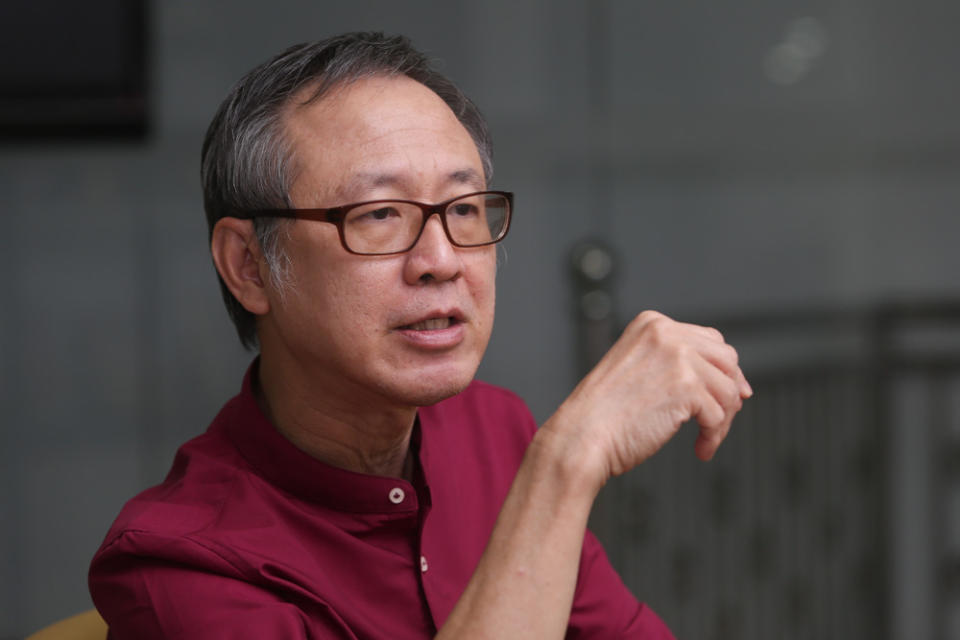Design thinking key to higher organisational success and reduced wastage

PETALING JAYA, Nov 30 — People may be familiar with the term design thinking (DT) but not its extensive potential in helping businesses achieve success and cut inefficiency.
This is the view of Malaysia Project Management Practitioners Community (MPC) co-founder Lee Nan Phin.
A Project Management Consultant with a background in artificial intelligence and computer science, he said DT was especially pertinent in a rapidly digitalising age.
“Design thinking is not just about getting things done, but also with the mindset to accept failure early on and thus avoid wasting resources in costly implementations, as in traditional project management. That requires some changes in management thinking,” he told Malay Mail.
The MPC will be conducting its Design For Value Conference and Workshop on December 17 and 18, at Genovasi Malaysia's d.school in Section 15, PJ.
Primarily catering to senior management personnel, project sponsors and leaders, and business owners, among others, the event aims to introduce participants to an Integrated Value Delivery Framework.
The framework combines the strengths of DT, the Agile concept and data analysis to improve an organisation's ability to deliver high-impact projects in line with their desired business outcomes and with limited resources.
Lee recounted the MPC's early origins back in 2000 when the Malaysia Digital Economy Corporation (MDEC) launched a project management capability development programme to train more certified project managers (PM).
“We were on the panel to prepare students for the certification examination,” he said.
Since the programme, the number of project managers in Malaysia rose from 80 at the time to around 5,000 now.
Lee said after training, the certified PMs are required by the international NGO Project Management Institute to continue their professional development.
“This was a contributing factor to the creation of MPC, a platform for PMs to share, network and career advancement. In 2005, we held our inaugural annual conference where contemporary issues related to project management were discussed.
“That year we brought in regional experts to share their experiences with the participants. In 2010, we were the first to introduce Agile Project Management into Malaysia, which is targeted for the digital and software industry.” he said.
Lee said that with digital projects, clients typically do not realise what they want until they see it.
He also said the pace of development was much higher than prior to the digital age, leading to more volatility but also greater innovation..
“Digital projects often pioneer new fields, such as Uber's distinctive business model, driven by the digital platform. However risks are high in the beginning and a lot of experiments are conducted to validate the market acceptance and technical feasibility. so these and other problems tend to draw attention to the use of DT,” he said.
Lee noted that in the last two years, many companies have begun to engage in digital transformation.
With numerous projects floating around and keeping the project team preoccupied, it results in an unhealthy and chaotic working environment. Many are keen on Agile Project Management as the proverbial silver bullet to enable faster deliveries.
“Yet a lot of outputs does not guarantee outcome. When you are implementing digital services, you should be focusing on outcomes, high-impact outcomes!” he said.
Here DT, Agile and Data Driven Decision Making comes into play, as the idea is to use these methodologies to evaluate and filter the various initiatives in a company with limited time and resources on hand, retaining the good while disposing of the bad.
“In this manner the number of ideas implemented into the project are minimised, which helps to increase the probability of success to deliver the desired outcome. It also functions to reduce the amount of resources that would have otherwise been wasted unnecessarily,” he said.
In relation to this year's conference, Lee said this time around it will be two days instead of the customary one in order to accommodate the workshop session.
“Ordinarily it was just the conference, but now we will limit it to half a day on DT experience sharing by the practitioners, and the remaining one and a half days will be dedicated to the workshop.
“The idea is to expose the participants to practice DT. It is better to see it for themselves, to appreciate the power of its techniques.” he said.
For further information please visit www.mpc.org.my.
Related Articles d.School Malaysia brings back its annual Design Thinking Awards to honour design thinkers Let universities recognise and be recognised — Tunku Zain Al-’Abidin Genovasi marks six years of design thinking


